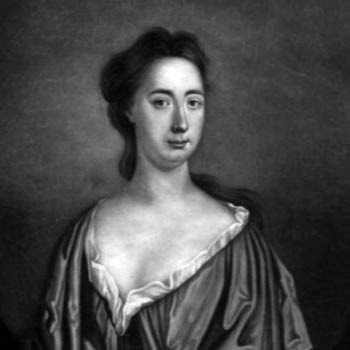
Susanna Newcome (1685-1763) was an eighteenth-century philosopher and theologian who lived and worked in England. Her most significant work, An Enquiry into the Evidence of the Christian Religion, contains an early formulation of utilitarian thought. In this short book, Newcome synthesizes contemporary developments in natural theology and moral psychology to offer a utilitarian account of the nature of ethics and our moral duties.
Life and Works
Newcome (née Squire) was born in 1685 in the small Wiltshire village of Durnford, where her father was a vicar.1 Following her marriage to John Newcome, a professor and university administrator, she moved to Cambridge, where she spent most of her adult life. Newcome had a keen interest in philosophy and theology and followed contemporary developments and disputes in these areas. She is known to have published two works during her lifetime. The Enquiry, mentioned above, consists of a rational assessment of the truth of Christianity. Newcome offers an argument for God’s existence and an account of the divine nature before arguing that we might expect God to provide us with revelation and defending the veracity of the revelations contained in the Bible. In making these arguments, she explores many issues relating to ethics. Her other work, The Plain Account of the Nature and End of the Sacrament of the Lord’s Supper Contrary to Scripture, was a polemical contribution to a contemporary theological debate. Newcome was widely respected for her character and intellect, and her works received positive reviews. She died in Cambridge in 1763 and was buried in St. Bene’t’s Church, where she had been a longtime parishioner.
Pleasure, Happiness, and the Good
A central component of Newcome’s utilitarianism is her commitment to a form of ethical hedonism (sometimes also called evaluative hedonism). Several things are commonly thought to be good: money, wisdom, family, achievement, justice, and so on. Hedonism is the view that there is only one true good: pleasure. Other putative goods are either not truly good or are only good in virtue of some connection to pleasure. In Sections 2 and 3 of the Enquiry, Newcome introduces a number of definitions which make clear that pleasure is essentially desirable, that it has a tight conceptual connection with happiness, and that it is additive in the sense that pleasure can aggregate and more pleasure is better than less. Her view is that “to all sensible beings pleasure is preferable to pain” and that “happiness is a term for collected pleasure, or a sum total of pleasure.”
Ethical hedonism played a significant role in the subsequent development of utilitarianism by later thinkers like Jeremy Bentham and John Stuart Mill. But ethical hedonism had deep roots in British moral thought even prior to Newcome’s time. Famous figures like Thomas Hobbes and John Locke had incorporated a version of the view into their non-utilitarian moral systems. And less well-known authors like William Wollaston and Francis Hutcheson had also placed pleasure at the center of their moral theories. Locke and Wollaston, in particular, seem to have been significant influences on Newcome.
Newcome is notable, however, for the depth of her commitment to the view and her willingness to follow through on its consequences. Consider, for example, the idea from above that there are many things other than pleasure commonly considered to be good. We have already seen that Newcome adopts an approach to happiness on which it is not an independent good, that is, happiness is nothing over and above pleasure. But what about other things? Knowledge or virtue, for example. Newcome is happy to say that knowledge is valuable only because it tends to lead to happiness. Similarly, for her, virtue is nothing other than what leads to happiness. In this manner, she is willing to reduce all goods to pleasure.
In addition to ethical or evaluative hedonism, Newcome also seems to have been a proponent of psychological or motivational hedonism. This is captured by her claim that “if to all sensible beings pleasure is preferable to pain, then all such beings must will and desire pleasure, and will an avoidance of pain”. Later in the Enquiry, Newcome fervently asserts that humans have free will. So she need not be taken as arguing that humans are always fully determined in their choices by their greatest desires. But she clearly believes that in making choices we are responsive to our desire for happiness.
In the context of her utilitarianism, part of what makes Newcome’s commitment to psychological hedonism particularly interesting is the way it combines with another of her claims about human psychology. Specifically, Newcome believes that causing pleasure in others (which she equates with doing good) is pleasurable. Conversely, causing pain to others (which she equates with doing evil) is painful. Here is her formulation of the position: “No man makes happy, but he secretly applauds the Action; no man makes miserable, but he secretly condemns himself. No man designs ill, and stands unreproach’d by himself; no man designs good, that has not pleasure, even from that intention.” This is a powerful claim. Newcome thinks pleasure is fundamentally good and that we are motivated to pursue it. If one of the best ways to pursue pleasure ends up being the provision of pleasure to others then this is a welcome result. It means that we have some compelling reason to care not just about our own well-being, but also the well-being of others. Ultimately, of course, the question of whether causing pleasure to others is pleasurable (and causing pain to others is painful) will be an empirical one. Newcome seems to believe that these claims pass muster on introspective grounds. But she also believes that they have theological warrant. On her view, a benevolent God would have ensured that our good deeds were accompanied by a feeling of pleasure and our bad deeds by a feeling of pain.
Moral Duties
Moral philosophers writing during Newcome’s time often considered our moral obligations as falling under three heads: duties to ourselves, duties to others, and duties to God. Newcome adopts this tripartite distinction. What is notable, however, is that she justifies all of these duties by arguing that they will increase happiness. Our duties to ourselves include self-preservation, the obligation to avoid harmful overindulgence, and to care for our faculties. The idea is that we must maintain ourselves in good working order if we are to understand and pursue what will lead to our future happiness. The justification of our duties to God is also based in human happiness. Newcome notes that “God is not like man” in that God “does not receive damage if we pay him not that which belongs to him.” Nevertheless, she argues that fulfilling our obligations to God is important because it will make us happy.
Most interesting from a contemporary utilitarian perspective is Newcome’s analysis of our duties to others. For her, these fall under two heads: justice and beneficence. On the latter front, Newcome argues that we do what is best and what will produce our own happiness “by being a good being, that is, one who wills and promotes the happiness of all mankind, as much as is in his power.” Notable here, and in line with the discussion above, is the very tight link Newcome draws between goodness and happiness. And if we recall that, for Newcome, happiness just is pleasure, then we can understand that our duty of beneficence consists of the generation of pleasure for others.
Newcome’s claims about justice are more complex. According to her a “just, or righteous being” is one who “violates the rights of no man, and renders to all their dues”. At first pass, this invocation of rights appears to be at odds with a commitment to utilitarianism. Later utilitarians like Bentham would dismiss this kind of respect for natural rights as nonsense. But Newcome disagrees. For her, the reason to respect these rights has to do with the fact that doing so creates happiness, whereas not doing so creates misery. So, on this basis, she argues that murder, theft, oppression, tyranny, slander, lying, and similar acts are morally wrong.
This raises a question about what kind of utilitarian Newcome was. Contemporary utilitarians often distinguish between act utilitarianism and rule utilitarianism. Act utilitarians argue that in every instance we should choose the action most likely to produce the best outcome. Rule utilitarians argue that in every instance we should follow the rule that, if consistently followed, would produce the best outcomes. An example can help to make the difference clear. Imagine you could, without any risk of being caught, steal some money from a wealthy business tycoon who would not miss it (or even notice it was gone) and then use the money to buy food for those going hungry. The act utilitarian would—other things being equal—claim that this was the right thing to do. The rule utilitarian would disagree. She would note that while it is possible that in this particular instance, theft might be the best way to generate happiness, in the vast majority of instances, theft generates misery. Therefore, she would argue, we ought to enact and abide by a general prohibition on theft as the best way to promote happiness.
Newcome was writing at a very early stage in the development of modern utilitarianism. This makes it difficult to claim with complete confidence that she was either an act utilitarian or a rule utilitarian. After all, the distinction had not yet been clearly formulated. Nevertheless, situating her views with respect to act and rule utilitarianism can be useful. As noted above, Newcome is clear that the reason to avoid violating the rights of others—that is to say, not committing acts of murder, theft, dishonesty, etc.—is that this generates happiness. But the question is whether it does so in general or whether it does so in every instance. For Newcome, it seems to be the latter. As she writes: “Every man is by the frame and structure of things, possessed of some right or property, which cannot be violated without pain and injury to him”. Slightly later, she uses similar language about the “frame and constitution of things” to again reiterate the importance of justice. And this leads her to claim that all acts of murder, lying, theft and the like are wrong. Thus, she seems to be having it both ways. She agrees with the act utilitarian that we should always act in the way that will promote the most happiness in the given situation we find ourselves in. And she also agrees with the rule utilitarian that the best way to promote happiness is by following a general set of rules. But what are we then to make of “Robin Hood” cases like the one outlined above? Newcome does not consider cases like this directly. But she does offer the following consideration: “as God wills that the rights of no man be violated, and that all have their dues, so he must constitute things that happiness must be the effect of righteousness, and misery of unrighteousness. And could just and righteous actions produce misery to man; unjust, cruel, and tyrannical ones, happiness; God must have constituted things contrary to reason, and a fitness of things, and be not a good being; or he must act in opposition to himself”. So Newcome’s view is that God acts as a sort of moral “backstop” ensuring the universe is such that there is never a conflict between actions that promote happiness and those that conform to general rules.
Further, while Newcome agrees with the rule utilitarian that the best way to promote happiness is to follow a general set of rules, she might nonetheless disagree that actions are right because or only insofar as they are in accord with those rules. Her clear commitment throughout is to the idea that actions are right because or insofar as they promote happiness. Following certain rules is only morally commendable because divine beneficence ensures that following those rules will, in all instances, promote happiness. Given all of this, it might be best to see Newcome as a multi-level utilitarian. Multi-level utilitarians argue that actions are right insofar as they promote happiness, but reject the idea that in making decisions we should attempt to determine how much happiness would be generated by each of our possible actions. Instead, they are happy to adopt and follow general rules as heuristics which will guide them in their efforts to generate maximal happiness.
Thematic Links to Contemporary Utilitarians
Two other points in Newcome’s discussion of our duties to others are worth emphasizing because of the way they resonate with key themes in contemporary utilitarian thought. The first relates to the concept of maximization. Utilitarians often claim that we should not just choose a good option from those available to us but that we should choose the best option available to us. To the extent that actions are good insofar as they generate happiness, this means that we should always choose the action likely to generate the most or the greatest amount of happiness. This line of thought is very much present in Newcome’s Enquiry. As she puts the point: “God always wills happiness to the whole creation, and has made man capable and willing and promoting the happiness of his species; then God wills that man always will happiness, and promote it as far as he is able”. The final clause here suggests we should aim to maximize the amount of happiness we create.
Some utilitarians have noted that this simple idea—that we should always aim to generate as much happiness as possible—has some important consequences. Specifically, they have noticed that those of us who have far more than they need could maximize happiness by giving far more than they normally do to those of us who have far less than they need. Peter Singer’s famous paper “Famine, Affluence, and Morality” makes just such a case.2 He argues that affluent citizens of developed nations have an obligation to redistribute much of their wealth to those suffering extreme poverty.
Although she does not pursue the argument in as much detail or with as much vigor as Singer, Newcome develops a similar line of thought. She argues that an individual ought to promote happiness “as far as he has power”. She takes this maximizing idea quite seriously, especially in her consideration of one who “may say, he fed, he cloath’d, but when that which should feed and cloath, is to be parted with by himself, in that thing desired to be pardon’d; but God not only wills, but in all actings with sensible beings promotes their happiness: consequently man must, if he would be acceptable to God, promote happiness whenever he has the opportunity”. She then speaks about the importance of feeding the hungry, aiding the oppressed, and protecting the vulnerable. Her view is that these are universal duties in the sense that anyone capable of fulfilling them is under an obligation to do so even when that person would incur a cost to themselves.
The second point made by Newcome that aligns her with many contemporary utilitarians relates to non-human animals. The concept of animal rights did not exist at the time when Newcome was writing. A passage from Genesis in which God granted humans “dominion” over non-human animals was widely taken to mean that humans had no direct duties to animals. While willfully harming animals might show disrespect toward God or might corrupt one’s moral character, it was not believed to be intrinsically wrong. Early utilitarians like Bentham took issue with this idea. For them, the fact that animals were sentient, that is, were capable of experiencing pleasure and pain, meant that they had moral status and thus deserved to be treated in certain ways. Later thinkers in the tradition, again Peter Singer is a prominent example, developed these themes to argue that humans should radically rethink their relationships with animals in ways that let them avoid needless suffering and exploitation.3
Newcome, no doubt reflecting some of the prejudices of her time and place, does assert that non-human animals are designed and provided by God for human use. What is remarkable, however, is her recognition of their sentience and her assertion that this entitles non-human animals to our concern and a certain type of treatment. An individual should “remember, when he makes the Creatures labour, to do it with mercy; to lay no grievous burden on them, and what is not proportion’d to their strength; to use them with no unnecessary severity; but to be as compassionate towards them, as is consistent with them being serviceable to him. And further, when he takes away their lives, he is to remember to do it in that manner which is least painful to them”. These clear injunctions against cruelty and unnecessary harm to animals are a natural extension of Newcome’s views on our duties of beneficence and show her clearly recognizing that the happiness of non-human animals has value in much the same way that the happiness of humans does.
As mentioned above, views of this sort were very rare at the time. Only a few other thinkers in early modern Britain, people like Francis Hutcheson and Humphry Primatt, were beginning to consider animal welfare in this way.4 So Newcome deserves recognition as one of the first proponents of animal rights.
Religion and Ethics
As mentioned above, Newcome’s text is explicitly religious. Indeed, the central goal of the book is the defense of Christianity. In keeping with this, much of what Newcome says about morality is derived from her understanding of God’s nature and what she believes God intends for creation. So she often characterizes our moral duties in terms of what would make us pleasing to God or what would allow us to better emulate God’s goodness.
Utilitarianism is a secular moral theory in the sense that it takes no position on religious issues. Although some religions do have moral teachings that conflict with utilitarianism, utilitarianism in and of itself is compatible with many versions of both theism and atheism. Nonetheless, some utilitarians have positioned the view as an alternative to moral codes derived from religious thought. Because of this, it might be a bit surprising that Newcome was such a passionate advocate of both Christianity and utilitarianism. But her view was that, far from being in conflict, the two positions are mutually reinforcing.
Newcome’s book is a defense of Christianity as revealed in Scripture, but it is a defense built on rational grounds. Newcome wanted to show that the proper exercise of reason would lead people to the Christian faith. This led her to begin the book with an investigation of human nature, an argument for God’s existence, and (as already discussed) an analysis of the nature of ethics and our moral duties. In this sense, while she did believe utilitarianism was compatible with Christianity, Newcome’s fundamental reasons for supporting utilitarianism were rational ones. Later in the book, she goes on to pursue questions relating to divine revelation, the status of Jesus as the Messiah, and the like. But her view was that in the investigation of theological matters, we ought to be guided by reason; she even claimed that any revelation requiring action contrary to what we can determine by reason to be morally correct should be rejected.
Because of these views, Newcome offers an interesting insight into the relationship between early utilitarianism and Christianity. And, in many ways, her moral views were similar to other contemporary theologians in the Church of England. In fact, it can be useful to think of Newcome and her contemporaries as constituting a school of thought: Anglican Utilitarianism.5 Rationalist strands in theology combined with the prevalence of hedonist conceptions of the good in this period. This offered fertile ground for the development of utilitarianism in England even prior to its systematic exposition by authors like Bentham.
Legacy
Although Newcome’s books were appreciated by her contemporaries, there are comparatively few references to her work in later authors. And, unfortunately, her thought is not well-known today. Newcome published anonymously, and this was likely an obstacle to her building a larger reputation. Additionally, Newcome published just two works and only one of them—the Enquiry—was on a topic of enduring interest. And, perhaps most importantly, Newcome wrote at a time when women philosophers and theologians struggled to publish, to be read, and to be taken seriously. It seems very likely that her gender was an important factor in her ideas not receiving more attention. Despite all of this, a careful examination of Newcome’s historical and intellectual context supports the claim that she made a very important contribution to the development of utilitarianism.
The Anglican Utilitarian movement mentioned above was largely centered around the University of Cambridge. Important thinkers like John Gay, John Brown, Soame Jenyns, Edmund Law, Thomas Rutherforth, and William Paley were all educated at Cambridge, and many of them had subsequent positions at the university. Several of them also had connections to St John’s College, where Newcome’s husband was the Master. Contemporary reports indicate that Newcome was respected for her intellect, up-to-date on contemporary intellectual trends, and much sought after as a discussion partner. She also published her utilitarian views earlier than did the other Anglican Utilitarians. All of this suggests that she may have been an important source for the views of thinkers like Law and Rutherforth. In any event, she deserves an important place in the history of utilitarianism’s development.
How to Cite This Page
Want to learn more about utilitarianism?
Works of Susanna Newcome
- An Enquiry Into the Evidence of the Christian Religion (2nd Edition, 1732)
- An Enquiry Into the Evidence of the Christian Religion (1st Edition, 1728)
- The Plain Account of the Nature and End of the Sacrament of the Lord’s Supper (Part One, 1737)
- The Plain Account of the Nature and End of the Sacrament of the Lord’s Supper (Part Two, 1738)
Resources on Susanna Newcome’s Life and Works
- Connolly, P. J. (2021). “Susanna Newcome and the Origins of Utilitarianism”. Utilitas. 33(4): 384–398.
- Connolly, P. J. (2019). “Susanna Newcome’s Cosmological Argument”. British Journal for the History of Philosophy. 27(4): 842–859.
- Enterline, S. R. (2020). No Apologies: The Life and Work of Susanna Newcome.
- Lascano, M., K. Watson, and R. Martins (2020). Women Philosophers Throughout History: An Open Collection. Lawrence: University of Kansas Libraries.
Prominent Susanna Newcome Quotes
- “Happiness is a term for collected pleasure, or a sum total of pleasure.”6
- “A good being… is, one who wills and promotes the happiness of all mankind, as much as is in his power.”7
- “God wills that man always will happiness, and promote it as far as he is able.”8
- “[A person] may say, he fed, he cloath’d, but when that which should feed and cloath, is to be parted with by himself, in that thing desired to be pardon’d; but God not only wills, but in all actings with sensible beings promotes their happiness: consequently man must, if he would be acceptable to God, promote happiness whenever he has the opportunity.”9
- “[An individual should] remember, when he makes the Creatures labour, to do it with mercy; to lay no grievous burden on them, and what is not proportion’d to their strength; to use them with no unnecessary severity; but to be as compassionate towards them, as is consistent with them being serviceable to him. And further, when he takes away their lives, he is to remember to do it in that manner which is least painful to them.”10
About the Author
Patrick Connolly is an Assistant Professor of philosophy at Lehigh University. His research focuses on issues at the intersection of philosophy, theology, and the natural sciences in seventeenth-century Europe. While much of his past work focuses on the thought of John Locke and Isaac Newton, he has also pursued projects relating to a number of lesser-known figures including Susanna Newcome.
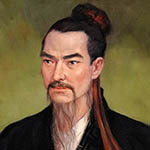

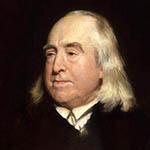
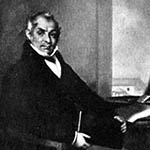
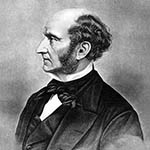
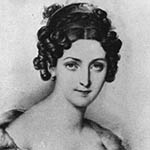
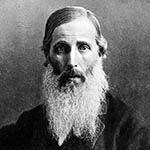
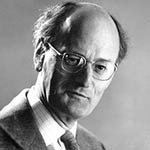
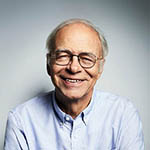
Unfortunately, very little is known about her biography. The key facts and sources are collected in Patrick J. Connolly (2019). “Susanna Newcome’s Cosmological Argument”. British Journal for the History of Philosophy. 27: 842–859. Some further details are provided in Patrick J. Connolly (2021). “Susanna Newcome and the Origins of Utilitarianism”. Utilitas. 33: 384–398, from which the main lines of thought in this article are drawn. ↩︎
Peter Singer (1972). “Famine, Affluence, and Morality”. Philosophy and Public Affairs.1: 229–43. ↩︎
Peter Singer (1975). Animal Liberation. New York: Random House. ↩︎
Aaron Garrett (2007). “Francis Hutcheson and the Origin of Animals Rights”. Journal of the History of Philosophy. 42: 243–265. ↩︎
Colin Heydt (2014). “Utilitarianism Before Bentley”, in The Cambridge Companion to Utilitarianism, eds. B. Eggleston and D.E. Miller. New York: Cambridge University Press; James E. Crimmins (1998). Utilitarians and Religion. Bristol: Thoemmes Press. ↩︎
Enquiry ↩︎
Enquiry ↩︎
Enquiry ↩︎
Enquiry ↩︎
Enquiry ↩︎



